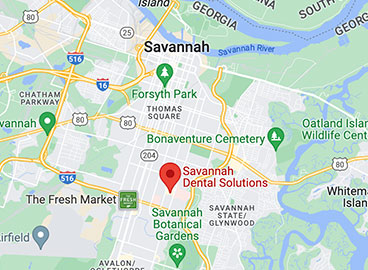Understanding Teeth Scaling & Dental Deep Cleaning
Although it sounds a bit like a medieval torture process, dental scaling is actually a routine procedure designed to treat gum disease. While a regular dental cleaning focuses on the surfaces of the teeth, dental scaling goes below the gumline to treat built up plaque. It is typically performed in conjunction with root planing, which smooths the tooth roots and helps them reattach to the gums. Here is what you should know about dental scaling.
Why Do I Need Dental Scaling?
Brushing and flossing are the first line of defense against dental plaque, but they are not sufficient on their own. Regular dental cleanings remove the plaque and hardened tartar that home oral care leaves behind. In people with healthy gums, the gum tissue forms a tight seal just 3 millimeters or less below the gumline that prevents this plaque and tartar from invading any deeper.
If you have skipped a few dental cleanings or simply have bad genetic luck, these pockets can deepen, allowing plaque and tartar to build up below where regular dental cleanings can reach. If you have pockets of 4 millimeters or deeper, you will need dental scaling to clean them out.
Dental Scaling Methods
There are two basic methods for dental scaling. The first uses handheld instruments. Your dentist will gently insert thin metal tools known as a dental scaler and a curette below the gumline to scrape away plaque and tartar.
The second method is ultrasonic. In this case, your dentist will use an instrument with a vibrating metal tip and cool water spray. The tip chips off the plaque and tartar, while the water flushes it away.
Is Dental Scaling Painful?
Dental scaling can feel uncomfortable or even painful to those with sensitive gums. Talk to your dentist about using a local anesthetic to numb your gums if you have concerns about pain.
Some dentists prefer to divide the mouth in half, or even into four quadrants, and scale one section per appointment. If you are particularly nervous, though, or just prefer to get the process over with, ask your dentist if it is possible to do your entire mouth in a single appointment.
Aftercare
It is normal to experience some soreness and sensitivity, along with minor swelling and bleeding, for a few days after dental scaling. Your dentist might suggest that you use a toothpaste for sensitive teeth during this time. You may also receive a prescription mouthwash to help ensure that your gums remain clean and healthy. Though your mouth may feel sore, it is critical to brush and floss as normal to prevent plaque from re-forming in the same places.
You will be scheduled for a follow-up visit several days after your scaling procedure to measure the depth of the gum pockets and ensure that you are properly healing. Over time, if you maintain excellent oral hygiene, the pockets should heal. However, those who have had gum disease remain at increased risk for future recurrence. Your dentist may want you to have four cleanings per year instead of two to minimize this risk.
Want to Learn More?
If you want to learn more about how we can keep your entire family’s smiles in tip top shape, contact Savannah Dental Solutions today at (912) 354-1366 for more information or to schedule an appointment.



